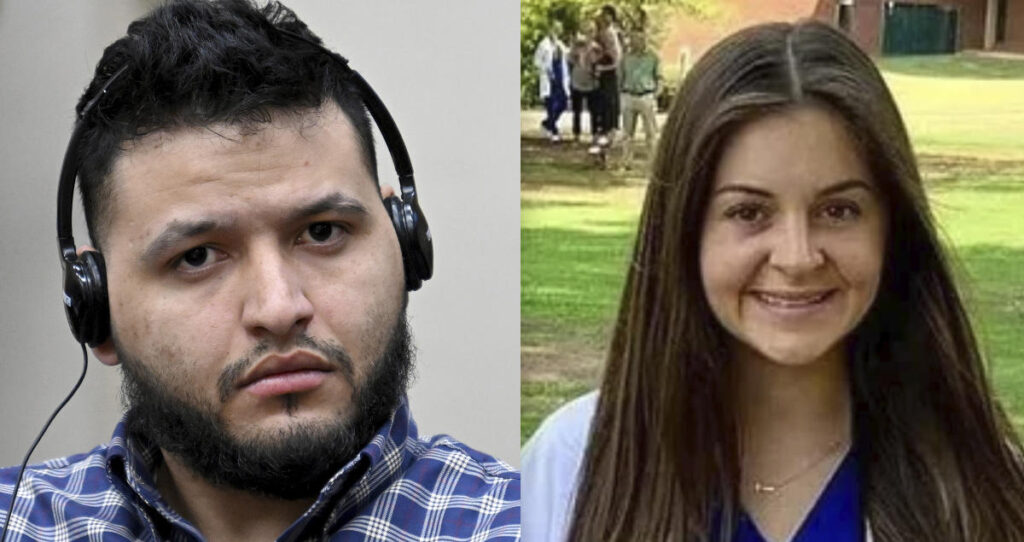On Wednesday, Jose Antonio Ibarra, a 26-year-old Venezuelan citizen, was found guilty of murdering 22-year-old nursing student Laken Riley at the University of Georgia. Ibarra, who had crossed the U.S.-Mexico border illegally in 2022 and was awaiting immigration proceedings at the time of the murder, was sentenced to life in prison without the possibility of parole. This case has reignited debates surrounding border security, especially as President-elect Donald Trump and Republican leaders use Riley’s murder as a point of contention to argue that President Biden is not doing enough to safeguard the borders from dangerous individuals. In a social media post, Trump expressed hope that the verdict would provide closure for Riley’s family and called for stricter immigration policies to prevent similar tragedies.
The details surrounding Riley’s disappearance and murder are harrowing. She was last seen on February 22, 2024, after going for a morning jog, leading her friends to report her missing when she failed to return. After an extensive police search, her body was discovered near a jogging trail on campus, revealing that she had died from blunt force trauma. Ibarra was arrested on February 23, thanks to substantial evidence pointing to his involvement in the crime, even as he pleaded not guilty to 10 counts, including malice murder, three counts of felony murder, kidnapping, and aggravated assault.
The trial unfolded over four days, showcasing startling evidence presented by the prosecution, which included a profound statement from Riley’s mother, Allyson Phillips, who described the emotional turmoil her family has endured since Riley’s murder. The prosecution provided substantial forensic evidence, including DNA found under Riley’s fingernails that matched Ibarra’s exclusively. Contrarily, the defense argued that this evidence was circumstantial, claiming it was insufficient to prove guilt beyond a reasonable doubt.
Key testimonies from the trial included harrowing accounts from law enforcement officers. Bodycam footage showed the emotional moment officers discovered Riley’s partially nude body in the woods and attempted CPR. Significant evidence, such as a fingerprint on Riley’s phone found at the crime scene, scratches on Ibarra’s arms consistent with someone fighting back, and kitchen gloves found at Ibarra’s apartment, painted a troubling picture of his involvement. Furthermore, selfies taken by Ibarra on the day of the murder showed him wearing clothing that matched the description of a suspect seen in surveillance footage around the time of Riley’s death.
Investigators also examined data from Riley’s smartwatch, which indicated a sudden slowdown in her movement around the time of the attack, eventually showing a heart rate drop to zero beats per minute. The timeline of her final moments revealed that she reached out to her mother and placed a 911 call, which went unanswered before her tragic demise. The medical examiner later confirmed that Riley’s death was a homicide caused by blunt force trauma and asphyxia, ruling out any signs of sexual assault, which was a significant aspect of the prosecution’s case.
Ultimately, the court’s decision to convict Ibarra on all charges reinforces the gravity of his actions and emphasizes the impact on Riley’s family and the broader community. The trial’s conclusion may offer a degree of justice to Riley’s loved ones, although it simultaneously serves as a stark reminder of the ongoing national debates over immigration, crime, and the safety of vulnerable individuals in society. As Ibarra is sentenced to life in prison, voices advocating for stricter immigration controls continue to argue that cases like Riley’s illustrate the need for systemic reforms aimed at preventing similar tragedies in the future.

